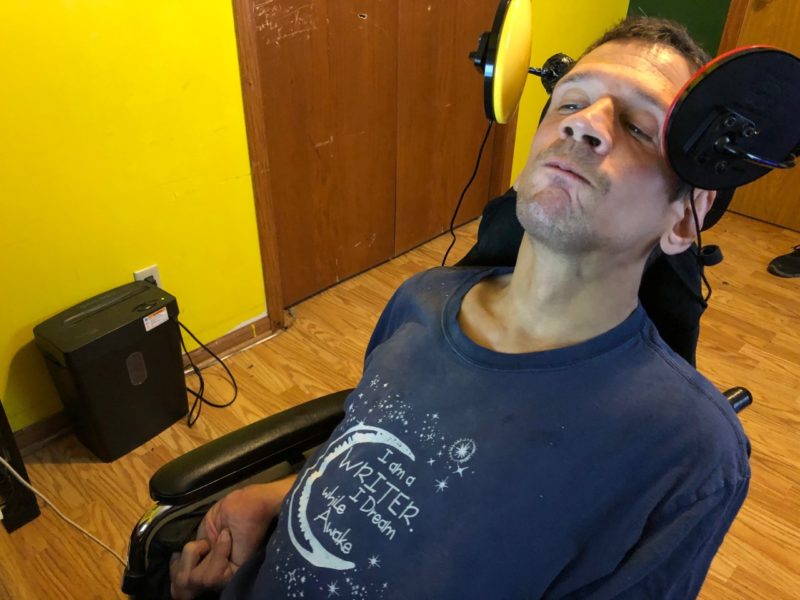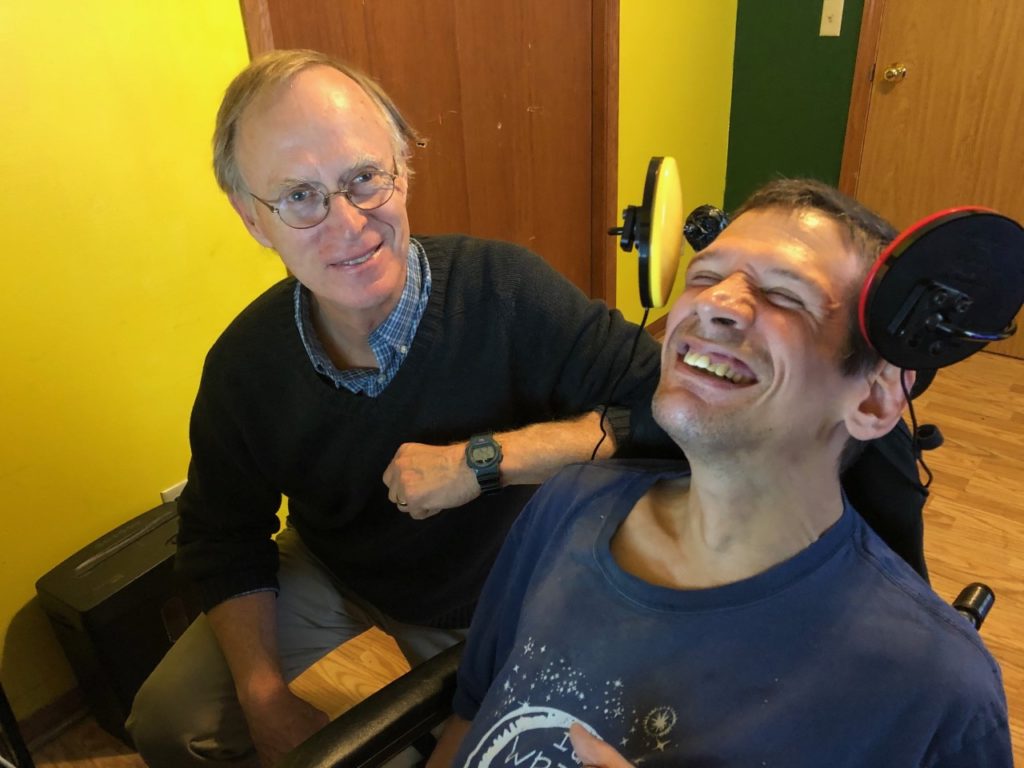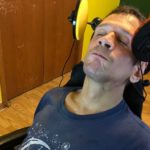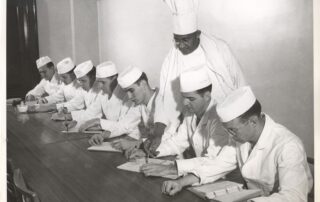Every author has their own way of writing — they get in the zone, channel their creativity, and then (hopefully!) words start flowing onto the page or screen.
There’s a writer in Madison that does this by writing in Morse code. Author Steven Salmon shares his experience of being a professional writer with Cerebral palsy while also living in a group home. He calls this story “The Tapping Author” and it’s read by WPR’s Norman Gilliland.
==
The Tapping Author
I sit in my manual wheelchair in front of the computer swaying my head back and forth tapping Morse code. Every five seconds another letter appears on the computer screen. A clock hanging on the wall ticks away. Time keeps moving as letters turn into words, becoming sentences, paragraphs, pages, chapters, and eventually novels. A TV is tuned to a talk show or a Brewers game. I’m in the writing zone concentrating on the process of creating when one of my care attendants walks up to me, asking, “What do you want to eat for supper?”
“I told you what I wanted three hours ago. A hamburger, a potato, and salad with dressing,” I say as I stop writing to answer her.
“Okay, thanks,” the attendant tells me, leaving the green and gold Packers office.
I resume writing when the attendant returns to ask, “What do you want on your burger?”
I looked at the time. It’s 3:00. “Why?”
“I’m busy and I want to make it now,” she says, waiting for my reply.
I sigh before answering, “Ketchup, mustard, and pickles.”
She goes out of the office while I continue to write. A minute later, she comes back, saying, “You don’t have any dressing.”
“Use vinegar. Don’t bother me. I’m working,” I reply, feeling upset not having what I want, but I’m focused on the manuscript. Often, I go without things that I need or want.
“You don’t have to get snippy. I want to make your meal before the next shift starts at 3:00,” the attendant says, getting ready to leave the office.
I don’t care as she steps out. After taking a couple of minutes, I regain my thoughts getting back to my writing when my roommate, who thinks we’re in a relationship says, “Hello, my friend. Can I have your ice cream?”
After taking a deep breath, I ignore her while trying to write. A moment passes, the words flow from my mind onto the page. That’s my life living in a group home.
I’m back in the zone pouring my heart into my writing…remembering my college classmates, who always inspired me. A memory of college is asking my friends, “Can I be an author and be independent? Will you come when I need help?”
“Yes, you will. And when you need us, we’ll be there,” my classmates said, reassuring me.
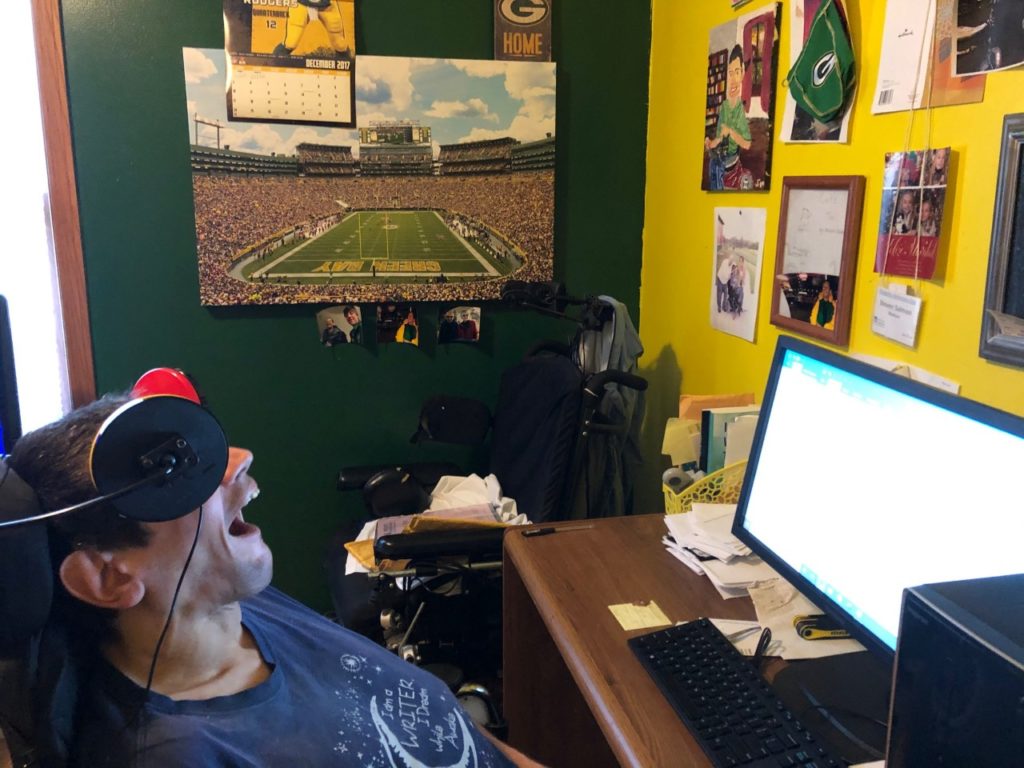
Green Bay Packers memorabilia and photos decorate author Steven Salmon’s office. (Maureen McCollum/WPR)
Writing is like breathing to me. I sit there lost in my newest manuscript, making a vision come to life for a reader.
I tap my second language of Morse code to write and communicate with people. It reminds me of my Dad, who was a ham radio operator. He taught me how to spell my name in Morse code.
When I was 24, an occupational therapist at the Waisman Center introduced me to the Morse code program called Daric. I used voice recognition software for fifteen years. I spelled out one letter at a time. The program was discontinued. When my voice recognition computer was struggling to work, I needed a way to write.
I’m writing in a consistent rhythmic pace now remembering the occupational therapist, saying, “Steve, it amazes me that you learned Morse code in two weeks and now you’re writing paragraphs.”
“I’m in the middle of writing a manuscript for my literary agent and I need a computer to write a New York Times best seller,” I said, swaying my head, tapping away.
Time moves fast while I write. It seems like nothing can stop me as I lose myself in the story.
“Hey, Steve your food is ready and it’s six,” the PM care attendant says, entering my office.
“Oh, give me five minutes,” I tell the attendant.
My classmates came to visit me a few days after my mother passed. My friends said, “Steve, you have wanted this for years. It’s here now. It won’t be easy, but you will do it. Now go do it!”
After forty-seven years of living with my mother, I was on my own for the first time of my life. There were times that I wanted to quit at the beginning, but my family and friends supported me through the transition.
Time is like writing. It changes and flows onward through new challenges. Life is short. The tapping is always in my mind writing the next page or manuscript.
For now, I’m tired and hungry. I call “I want to eat.”
“Coming.”
==
SONG: “I Could Write A Book” by Dinah Washington
